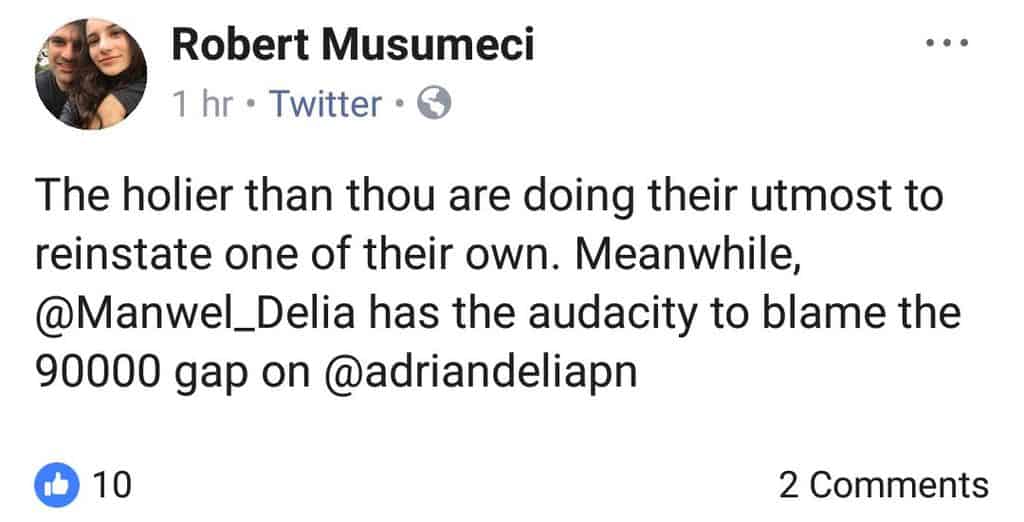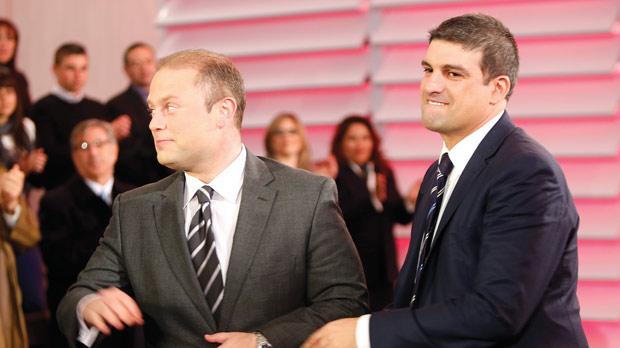Robert Musumeci is famous for many things: dexterity with planning permits, dexterity with political allegiance and dexterity with logical summersaults. He’s not famous for dexterity with language.
His tweet mantra these days is ‘holier-than-thou’ thrown willy-nilly at critics of his twin deities du jour: Joseph Muscat and Adrian Delia.

I suppose I can guess what he thinks he’s saying. People who speak about other people’s faults and foibles are sanctimonious and smug. They are today’s white washed tombs; Pharisees challenged to cast the first stone if and only if they are without sin. To stretch the biblical metaphor, we, for I too am often described as holier-than-thou by Robert Musumeci, walk around with beams in our eyes criticising our politician brothers for their motes.
I am not holier than most. But I am holier than those who ordered the killing of a journalist and on that high horse I have no shame in riding. I would like to think Robert Musumeci is also holier than them. And maybe even that he thinks his twin deities are holier than Daphne Caruana Galizia’s assassins.
Robert Musumeci’s standards are lower than mine but surely they can’t be so low as to consider himself unworthy of criticising murderers and assassins and demanding they are brought to justice.
Quite apart from the assassination, critics of politicians expect politicians to be holier than most. Certainly holier than Robert Musumeci, to name just the example that keeps rushing into this ethical minefield of criticising critics for the simple act of demanding standards of decency from those holding public office.
No one seriously hopes we can achieve a state of perfection and purity in any polity made of women and men. But the least we can expect is for people stepping up to lead the country to be subject to public scrutiny and the criticism of those Robert Musumeci seeks to insult with his ‘holier-than-thou’ taunt.
As part of that we should be able to expect that people lent public office on the basis of the people’s trust would act honourably, and would leave that office anytime that trust is found to have been breached.
And we are entitled to expect that journalists are not killed for doing their job. Is it really too sanctimonious to ask this much?
